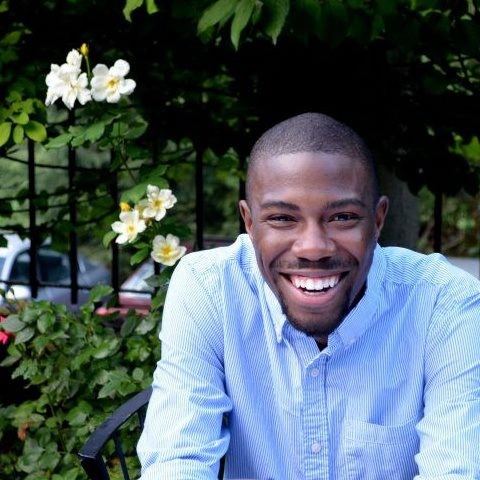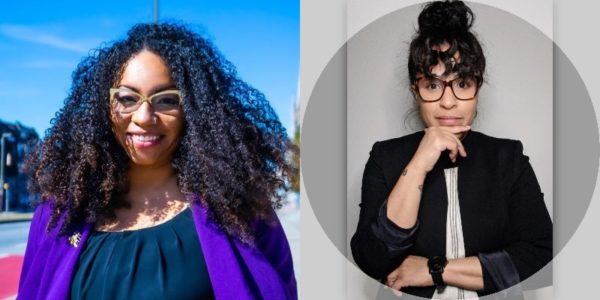After last week’s Maryland primary election, Ashley Esposito and April Christina Curley currently hold the most votes in the race for the City of Baltimore’s open Board of School Commissioners seats. Both have tech backgrounds. Coincidence, probably, but that doesn’t mean that tech and STEM education isn’t a big part of their platform.
This is the first time the school board has had spots open for election. In 2016, the Maryland General Assembly voted to add two new elected seats to the roster of 10 mayor-appointed school board commissioners. This opened the door for community voices on the school board, for which a crowded primary of eight candidates got cut down to four for the Nov. 8th general election.
Esposito has 19% of the vote while Curley has 15%, according to the Baltimore Banner’s latest updates on the election results. Esposito is currently transitioning out of a technology analyst position with the State of Maryland and taught herself programming languages when she was failing at school. As a neurodivergent student that struggled with the traditional scholastic pathways, Esposito saw how multiple pathways and vocational opportunities in tech can help make sure no student is left behind.
Curley is currently the engagement and partnerships manager at the Last Mile Education Fund but worked for Google as a diversity recruiter. Her work involves helping students reach the opportunities tech has to offer. Curley also saw the leaky bucket problem the giant tech companies have in retaining diverse tech talent and fell victim to how company culture can push diverse talent away when her Baltimore accent was infamously seen as an issue.
The school board holds the power to set the school budget, approve curricula and confirm funds for school building construction. What the Senate does for states, the school board does for the school district of Baltimore — just with dramatically less oversight because until now, all the seats were appointed by the mayor.
“The school board really has the opportunity to change the culture and the morale for Baltimore City Public Schools by the decisions they make,” Esposito said to Technical.ly. “The two people that are coming in, it’s not just us two. We’re bringing in the whole community.”
Curley shared a similar sentiment.
“I’m going to make sure that the community is involved in every step of the way when we’re talking about decisions that are being made about their children,” Curley said.
Both candidates see tech as a gateway to opportunities that they’ve experienced personally and want to bring to others.
“When I see Baltimore as a whole, I see our economy going in the direction of becoming like a tech hub,” Esposito said. “If our kids aren’t ready to fill those roles, they’re going to be left behind and people from the outside of Baltimore city are going to come in and take those jobs.”
Esposito doesn’t want that to happen and sees the power of the school board to create policies and curricula that provide students with the skills the tech industry seeks.
“For me, there’s a sense of urgency because every year that we don’t address the issue, that is an entire group of students that are graduating and becoming our future neighbors,” Esposito said. “There is a direct connection to healthy communities and our education system.”
During Curley’s time at Google, which she spent bridging the gap between the company’s expectations and student curricula to create a more diverse tech talent pipeline, she learned that the adults in the room cause the most problems. On the school board, she wants to remove as many barriers to student success as possible. She wants not just devices for Baltimore students, but a more rigorous computer science curriculum to ensure these pupils can actually compete in tech careers.
“Our kids are brilliant. They’re innovative, they’re creative. They’re curious, they want opportunities, and yet: The adults in the equation, the system in the equation, the oppression in the equation is the issue,” said Curley. “The pandemic exposed that our kids don’t have the tools necessary to keep up with virtual learning or online learning. You can get kids WiFi all day but if the WiFi doesn’t work or if it’s spotty or not strong, what really are we handing them? Crumbs.”
Donte Kirby is a 2020-2022 corps member for Report for America, an initiative of The Groundtruth Project that pairs young journalists with local newsrooms. This position is supported by the Robert W. Deutsch Foundation.Before you go...
Please consider supporting Technical.ly to keep our independent journalism strong. Unlike most business-focused media outlets, we don’t have a paywall. Instead, we count on your personal and organizational support.
3 ways to support our work:- Contribute to the Journalism Fund. Charitable giving ensures our information remains free and accessible for residents to discover workforce programs and entrepreneurship pathways. This includes philanthropic grants and individual tax-deductible donations from readers like you.
- Use our Preferred Partners. Our directory of vetted providers offers high-quality recommendations for services our readers need, and each referral supports our journalism.
- Use our services. If you need entrepreneurs and tech leaders to buy your services, are seeking technologists to hire or want more professionals to know about your ecosystem, Technical.ly has the biggest and most engaged audience in the mid-Atlantic. We help companies tell their stories and answer big questions to meet and serve our community.
Join our growing Slack community
Join 5,000 tech professionals and entrepreneurs in our community Slack today!

The person charged in the UnitedHealthcare CEO shooting had a ton of tech connections

From rejection to innovation: How I built a tool to beat AI hiring algorithms at their own game

Where are the country’s most vibrant tech and startup communities?



